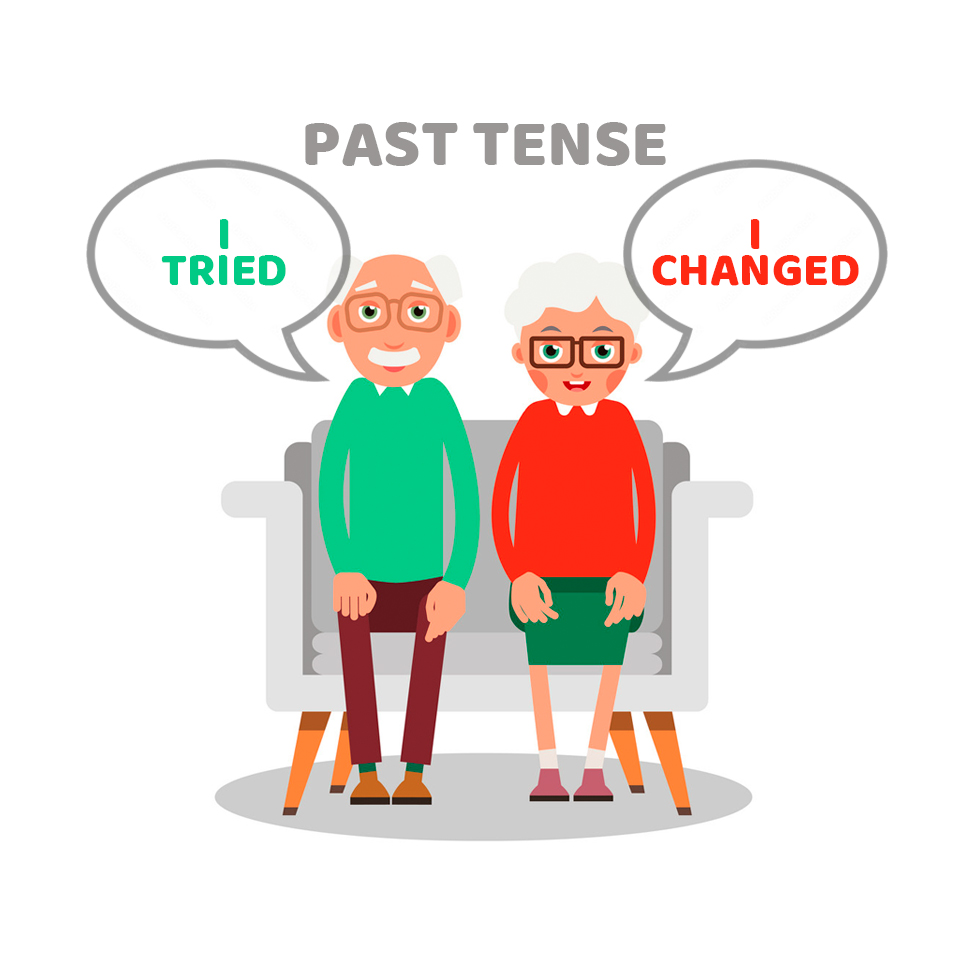¿Cómo se dice "go" en pasado simple en inglés?
"go" en pasado simple.
Como se dice go en pasado simple en ingles.
Pasado simple es muy simple en ingles.
"went"
ejemplos
I went to school.
You went to school.
She went to school.
It went to school.
They went to school.
We went to school
Eso es todo.
Siempre es "went"


Verb: to go - El verbo - Ir
Presente - En el presente simple el verbo solo cambia en la tercera persona singular
I go - Yo voy
You go - Tu vas
He goes - El va
She goes - Ella va
It goes - Es@ va
We go - Nosotros vamos
You go - Vosotros vais
They go - Ellos van
Ejemplos:
He goes out every weekend - El sale todos los fines de semana,
We go swimming on Mondays - Nosotros vamps a nadar los lunes.
Pasado - En el pasado simple el verbo no cambia.
I went - Yo fui
You went - Tu fuiste
He went - El fue
She went - Ella fue
It went - Es@ fue
We went - Nosotros fuimos
You went - Vosotros fuisteis
They went - Ellos fueron
Ejemplos:
I went shopping yesterday - Yo fui de compras ayer.
They went to the cinema last week - Ellos fueron al cine ayer.
Nota:
No confundir el verbo 'ir' con 'ser':
He went to his room - El fue a su habitación.
He was the best - El fue el mejor.
Emociones
También se usa el verbo ir junto con emociones
Ejemplos
They went crazy when they saw the graffiti - Ellos se volvieron locos cuando vieron el graffiti.
She went happy to the outing - Ella se fue feliz a la excursion.
El verbo To Go en el pasado decimos Went. Es un verbo irregular que cambiamos en el pasado
Verb: To Go
I went
He went
It went
We went
They went
You all went
I Went To The Movies.
I went to visit my grandma yesterday.
El verb "go" (ir) en simple past es "went"
El pasado simple.
El pasado simple se utiliza para hablar de situaciones que sucedieron en un momento especifico en el pasado..
Ejemplo
"I went to school yesterday" yesterday es un momento especifico en el pasado
Como se dice 'go' en el pasado en ingles:
Went
Y la pronunciacion queda como: uent
For example: I went to the store yesterday.
En conclusion, la respuesta es: went
More examples:
We went to the park earlier.
'go' en pasado simple es 'went'
go es un verbo irregular, por lo que no llevo la terminación -ed en sus formas en pasado.
Y como todos los verbos en pasado, es la misma forma para todas las personas.
Negativo y Preguntas
Como todos los verbos en pasado, para formar preguntas y negaciones, se usa el auxiliar did.
Al ver did, ya sabes que tu frase esta en pasado, así que ya no es necesario poner el verbo en pasado, y se mantiene en infinitivo.
Ejemplos
I went to work by bus this morning.
My brother went to Paris a couple of months ago. He loved it.
Where did you go last weekend?
I went to the beach with my girlfriend. Victor didn't go with us.
¡Así de fácil!
Para conjugar el verbo go en pasado simple, tenemos que considerar el sujeto del que habla:
Si los sujetos son I (yo), You (Tu), We (Nosotros), They (Ellos), el verbo no surge ninguna transformación:
I go to the park ---> Yo voy al parque
They go to run daily ---> Ellos van a correr diario
Si los sujetos son He (El), She (Ella), It (Eso) al verbo se le añade una "S" y en el caso de verbos de 1 sola sílaba como go y do, se les añade "ES"
Ejemplos
She goes swimming twice per week.
What do you think?
El verbo go es irregular, por lo que tenemos que memorizar que su pasado es went.
Por ejemplo:
Voy al colegio: I go to school
Fui al colegio: I went to school.
Si queremos usar el participio, este sería gone.
Por ejemplo:
He ido al colegio: I have gone to school.
Los verbos son una parte de la oración que se utilizan para indicar una acción.
Esta acción puede ser en:
Presente, pasado o futuro.
Aprendiendo verbos en pasado
El verbo Go es un verbo irregular, lo que significa que este no sigue una estructura establecida para formar su pasado.
El pasado de Go es Went🚶🏿
Por ejemplo:
She went to the park two days ago:
Ella fue al parque hace 2 días.
GO es un verbo irregular, por lo tanto, no se utiliza la terminación "-ED" para formar el pasado.
¿Cómo se dice GO en pasado simple en inglés?
PASADO SIMPLE DEL VERBO "GO" : WENT
WENT
Yesterday, I went to school by bus. - Ayer, fui al colegio en autobús.
(Acción completada)
PARTICIPIO PASADO DEL VERBO "GO": GONE
GONE
My sister has gone shopping. - Mi hermana se ha ido de compras.
(Acción en proceso, todavía no ha vuelto a casa)
WENT/Past Simple
El pasado simple, cuenta con VERBS, estos pueden ser Regulares o Irregulares. Los irregulares que aparecen en la tablita, que consta de tres partes, son aquellos verbos que modifican por completo o mantienen su forma. En este caso GO en pasado simple es WENT.
I go to the dely every day.
I went to the dely yesterday.
El pasado (o "el pretérito perfecto simple) de "go" is "went."
Fui = I went
Fuiste = You went
Fue = He/she/it went
Fuimos = We went
Fueron = They went
Examples:
I went to the market. (Fui al mercado.)
You went to school. (Fuiste a la escuela.)
He went home. (Fue a casa.)
We went to the movie theater. (Fuimos al cine.)
The went to the restaurant. (Fueron al restaurante.)
*Tenga en cuenta que usualmente se dice "go + to + ubicación" en inglés. La excepción más común a la regla es "go home" (No "go to home").
to go - ir
simple past
to go -> went
simple present -> simple past
I go -> I went
You go -> You went
He/She/it goes -> He/She/it went
We go -> We went
You go -> You went
They go -> They went
PASADO SIMPLE DEL VERBO GO
VERBO IRREGULAR
"WENT"
WENT
"Yesterday I went to my borther´s house"
Ayer, fuí a la casa de mi hermano
El pasado simple en inglés se utiliza cuando la línea de tiempo tiene principio, desarrollo y final.
Go se dice went
go is 说 go 也说是
I went to school when i was a kid
En conclusion go se dice went y tambien was en tiempo pasado..................................................................................................
.........

SIMPLE PAST
Easy to remember, use and learn

One of the main verb tenses in English.
Its purpose of this verb tense is to talk about an action or situation that occurred and ended in the past, where its duration has no relevance and have already ended. It is essential to know the past form of each of the regular and irregular verbs in English to use them.
Structure of the simple past with REGULAR VERBS
To properly use the structure of the past simple, let's first remember some important points about the endings of this type of verb.
1. - "D" IS THE ENDING OF VERBS THAT END IN "E"
VERB IN BASIC FORM | PAST | EXAMPLE |
|---|---|---|
Arrive | Arrived | I arrived five minutes ago |
Change | Changed | She changed her mind |
Love | Loved | He loved his wife |
2. - "ED" is the ending of verbs that end in a consonant or in y. Remember that when the verb ends in a consonant+y, you must replace the y with i and then add the ending -ed.
VERB IN BASIC FORM | PAST | EXAMPLE |
|---|---|---|
Walk | Walked | They walked around the whole city |
Kiss | Kissed | I kissed a frog when I was 13 |
Enjoy | Enjoyed | He enjoyed the whole trip |
Play | Played | We played tennis after school |
Marry | Married | She got married 5 times |
Try | Tried | He tried a new diet |
Now that we've seen how verbs are modified, let's look at the structure for each type of sentence and some examples of its use:
Afirmative | Subject + verb (-d, -ed) + complemento |
He lived in London 2 years | |
I cried when he died | |
Negative | Sujeto + did not + verbo en forma básica + complemento |
We didn’t argue this morning | |
He didn’t enjoy his birthday party | |
She didn’t finish her degree | |
Interrogative | Did + sujeto + verbo en forma básica + complemento |
Did she clean her house yesterday? | |
Did he call you? |
Remember that in the past simple, the negative and interrogative forms of the sentences must be built with the auxiliary did and the main verb of the action must remain unchanged.
In Amazing Talker we help you learn English regular verbs better, we will explain their pronunciation in detail. Below you will find 3 groups with their respective examples.
GROUP 1
All verbs whose written ending is -ed are pronounced /id/. For example: verbs that end in the present tense or te.
VERB IN BASIC FORM | PAST | EXAMPLE |
|---|---|---|
Start | Started | /star-tid/ |
Visit | Visited | /vih-sih-tid/ |
Rent | Rented | /rehn-tid/ |
Repeat | Repeated | /ree-pee-tid/ |
Create | Created | /cree-ey-tid/ |
Hate | Hated | /hey-tid/ |
Verbs ending in -d or -de are also pronounced with /id/. For example:
VERB IN BASIC FORM | PAST | EXAMPLE |
|---|---|---|
Crowd | Crowded | /krow-did/ |
Fold | Folded | /fold-did/ |
Provide | Provided | /pro-viy-did/ |
GROUP 2
In this case, it is not a written ending, but rather the “deaf” sound that is produced when pronouncing the last part of the word, that is, when there is no vibration of the vocal cords, as is the case with the vocal cords. following letters: p, k, ch, sh, f, s, h. So when you add the ending -ed, you get the sound of a t, like when you pronounce cat. Let's look at some examples:
VERB IN BASIC FORM | PAST | EXAMPLE |
|---|---|---|
Stop | Stopped | /stopt/ |
Like | Liked | /laikt/ |
Park | Parked | /parkt/ |
Group 3
Like the previous group, its pronunciation does not depend on its written form but on its pronunciation, and in this case there is a vibration of the vocal cords when vocalizing the verb, such as those ending in b, g, i, z, m, l, among others, and that together with the ending -ed sound like /d/. For example:
VERB IN BASIC FORM | PAST | EXAMPLE |
|---|---|---|
Hug | Hugged | /hugd/ |
Cry | Cried | /crayd/ |
Roar | Roared | /rord/ |
Surely you noticed that between the second and third groups are the regular verbs of a single syllable.
We recommend that you constantly practice each of their forms until you learn them by heart. Irregular verbs are so called because, unlike regular verbs that only change their ending, they completely change their root in two or all of their forms (present, past and participle).
There are about 200 irregular verbs, and although they may seem like a lot, they are not that many when you compare them with the almost 9,000 regular verbs in English.















